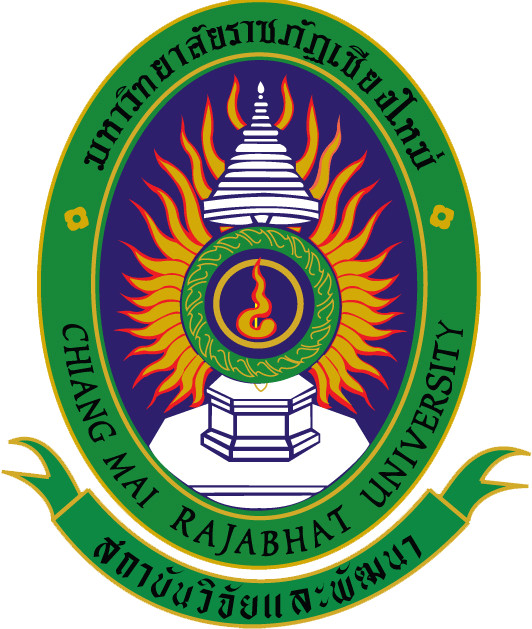
ระบบสารสนเทศงานวิจัย สถาบันวิจัยและพัฒนา มหาวิทยาลัยราชภัฏเชียงใหม่
Research Information System(RIS)
ชุดโครงการ การพัฒนาแบบคัดกรองและระบบประเมินแนวโน้มในการเกิดภาวะสมองเสื่อมของผู้สูงอายุในอำเภอสารภี จังหวัดเชียงใหม่ โดยใช้เทคนิค Data Mining
อาจารย์ ดร.ณัฎฐ์ฤทัย อรุณศิโรจน์
คณะมนุษยศาสตร์และสังคมศาสตร์
คำสำคัญ :
ภาวะสมองเสื่อม ระบบคัดกรองและประเมินแนวโน้มในการเกิดภาวะสมองเสื่อม รูปแบบการดูแลสุขภาพและการฟื้นฟูความจำของผู้สูงอายุที่มีภาวะสมองเสื่อมโดยใช้ชุมชนเป็นฐาน Dementia Screening System and Assessment for Tendency of Dementia Community-Based Healthcare and Memory Rehabilitation of the Elderly with Dementia
เลขทะเบียน :
1531-65-HUSO-TSRI
บทคัดย่อ
อาการสมองเสื่อม (Dementia) เป็นกลุ่มอาการทางระบบประสาทอันเป็นผลจากเซลล์สมองที่ถูกทำลายอย่างช้าๆและต่อเนื่องส่งผลให้บุคคลนั้นๆมีความผิดปกติทางด้านการรู้คิดทำให้เกิดการสูญเสียความจำระยะสั้นและความจำระยะยาว สำหรับประเทศไทยอัตราความชุกของจำนวนผู้ป่วยที่มีภาวะสมองเสื่อมเพิ่มขึ้นอย่างต่อเนื่องจากอดีตจนถึงปัจจุบัน เพราะโครงสร้างทางด้านประชากรของประเทศมีการเปลี่ยนแปลง สังคมไทยกำลังเข้าสู่สังคมผู้สูงอายุอย่างสมบูรณ์เนื่องจากจำนวนผู้สูงอายุที่เพิ่มขึ้นอย่างต่อเนื่องในแต่ละปี ทำให้โรคสมองเสื่อมกลายเป็นโรคเรื้อรังที่ติดอันดับ 1 ใน 5 ของโรคที่เกิดกับผู้สูงอายุในปัจจุบัน คณะผู้วิจัยได้ตระหนักถึงปัญหาทางด้านสุขภาพของผู้สูงอายุที่มีภาวะสมองเสื่อมซึ่งนับวันจะทวีความรุนแรงเพิ่มขึ้นตามลำดับ ดังนั้นการวิจัยครั้งนี้จึงมีแนวคิดในการพัฒนาระบบคัดกรองและประเมินแนวโน้มในการเกิดภาวะสมองเสื่อมของผู้สูงอายุในอำเภอสารภี จังหวัดเชียงใหม่ โดยใช้เทคนิคเหมืองข้อมูล (Data Mining) และพัฒนารูปแบบการดูแลสุขภาพและการฟื้นฟูความจำของผู้สูงอายุที่มีภาวะสมองเสื่อมโดยใช้ชุมชนเป็นฐาน ซึ่งผลที่ได้จากการวิจัยครั้งนี้จะช่วยอำนวยความสะดวก ในการคัดกรองผู้ป่วยสมองเสืื่อมเบื้องต้น ลดภาระของบุคลากรทางการแพทย์ รวมไปถึงผู้ดูแลผู้สูงอายุ อาสาสมัครหรือคนในชุมชนเพื่อช่วยคัดกรองผู้ป่วยในพื้นที่ ซึ่งจะเป็นประโยชน์โดยตรงต่อผู้สูงอายุทั่วไปที่จะรับทราบผลการประเมินแนวโน้มในการเกิดภาวะสมองเสื่อมได้อย่างรวดเร็วทันท่วงที เพราะถ้าสามารถคัดกรองผู้ป่วยในระยะเริ่มต้นได้เร็ว ความสามารถของสมองที่จะฟื้นฟูความจำระยะสั้น ชะลอการเสื่อมของสมองและทำให้สมองกลับมาทำงานเป็นปกติหรือใกล้เคียงกับสภาพที่เคยเป็นอยู่มีความเป็นไปได้สูง นอกจากนั้นการใช้ แอปพลิเคชันฝึกความจำเพื่อฟื้นฟูความจำของผู้ป่วยสมองเสื่อมโดยใช้หลักกิจกรรมตามหลักปรัชญามอนเตสซอรี่และรูปแบบการส่งเสริมสุขภาพของผู้ป่วยที่มีภาวะสมองเสื่อมโดยใช้ชุมชนเป็นฐาน เพื่อตอบสนองการมีส่วนร่วมในการดูแลสุขภาพผู้สูงอายุของคนในครอบครัวและชุมชน ยังถือได้ว่าเป็นการลดภาระไม่เพียงแต่บุคลากรทางการแพทย์แต่รวมไปถึงค่าใช้จ่ายที่จะเกิดขึ้นในโรงพยาบาลของรัฐ อันเนื่องมาจากการเข้ารับการดูแลรักษาอย่างต่อเนื่องเป็นระยะเวลายาวนานของผู้สูงอายุที่มี ภาวะสมองเสื่อมซึ่งจัดได้ว่าเป็นกลุ่มอาการเรื้อรัง ซึ่งจะนำไปสู่คุณภาพชีวิตที่ดีทั้งต่อผู้สูงอายุ ครอบครัวและชุมชน อันเป็นการพัฒนาและส่งเสริมสุขภาพของคนในชุมชนอย่างยั่งยืน
ผู้วิจัยได้พัฒนาแอปพลิเคชันบนอุปกรณ์พกพา “Brain Screening” บนระบบปฏิบัติการณ์แอนดรอยด์ ซึ่งเป็นแอปพลิเคชันคัดกรองและระบบประเมินแนวโน้มในการเกิดภาวะสมองในการคัดกรองเบื้องต้นของผู้สูงอายุที่มีแนวโน้มในการเกิดภาวะสมองเสื่อม โดยการวิจัยในครั้งนี้ใช้แบบประเมินความสามารถในการรู้คิด จำนวน 4 แบบประเมินได้แก่เครื่องมือการคัดกรองสำหรับอาสาสมัครสาธารณสุข คือแบบประเมิน 14 ข้อคำถามสำหรับประเมินปัญหาด้านความจำ โดยผู้ที่อ่านออกเขียนได้ สามารถประเมินด้วยตนเอง แบบประเมิน Mini-Cog สำหรับประเมินปัญหาด้านความจำ การวางแผนและมิติสัมพันธ์และแบบประเมิน IQCODE-Modified 8 ข้อ สำหรับญาติหรือผู้ดูแลใกล้ชิดเป็นผู้ให้คำตอบเกี่ยวกับอาการด้านความจำ และการบริหารจัดการ และในส่วนของเครื่องมือการคัดกรองสำหรับบุคลากรทางการแพทย์และสาธารณสุข ได้แก่ แบบประเมิน AMT สำหรับประเมินปัญหาด้านการรับรู้เวลา สถานที่ บุคคล ความใส่ใจและความจำ ซึ่งเครื่องมือการคัดกรองเหล่านี้เป็นเครื่องมือที่มีความเหมาะสมในการคัดกรองผู้สูงอายุที่มีภาวะสมองเสื่อม
ส่วนการวิเคราะห์ข้อมูลรูปแบบความสัมพันธ์ระหว่างภาวะสมองเสื่อมกับบริบทสถานการณ์ของผู้สูงอายุในอำเภอสารภี จังหวัดเชียงใหม่ พบว่า ปัจจัยที่สัมพันธ์กับภาวะสมองเสื่อมของผู้สูงอายุในอำเภอสารภี จังหวัดเชียงใหม่ ได้แก่อายุ การทำงานปัจจุบัน โรคประจำตัว การสูบบุหรี่ การดื่มเครื่องดื่มที่มีแอลกอฮอล์ การออกกำลังกาย และการเข้ากิจกรรมทางสังคม
นอกจากนั้นผู้วิจัยได้พัฒนาแอปพลิเคชัน “Brain Booster” ซึ่งเป็นแอปพลิเคชันฝึกความจำเพื่อฟื้นฟูความจำของผู้สูงอายุที่มีความเสี่ยงในการเกิดภาวะสมองเสื่อมโดยใช้กิจกรรมตามหลักปรัชญามอนเตสซอรี่ เป็นแอปพลิเคชันที่อยู่ในรูปแบบของเกมสำหรับฝึกความจำเพื่อฟื้นฟูความจำของผู้สูงอายุ โดยเกมที่พัฒนาขึ้นเป็นเกมที่เกี่ยวข้องกับการใช้งานในชีวิตประจำวันของผู้สูงอายุ ได้แก่ เกมทำอาหารแบบง่าย เกมจัดยาในรอบสัปดาห์ และเกมการคิดเงินจากการจ่ายตลาด โดยแต่ละเกมจะมีการแยกระดับความยากง่าย ออกเป็น 3 ระดับ ได้แก่ ระดับง่าย ระดับปานกลาง และระดับยาก และได้พัฒนารูปแบบการดูแลสุขภาพและการฟื้นฟูความจำของผู้สูงอายุที่มีความเสี่ยงในการเกิดภาวะสมองเสื่อมโดยใช้ชุมชนเป็นฐานที่ได้พัฒนาขึ้นประกอบด้วยขั้นตอน 3 ขั้นตอน ได้แก่ การเตรียมชุมชน ระยะการวิจัย และขั้นตอนหลังการวิจัย และผลการประเมินความพึงพอใจของผู้สูงอายุที่ในภาพรวมมีความพึงพอใจในระดับมาก
แอปพลิเคชันทั้งสองได้มีการเผยแพร่แอปพลิเคชันดังกล่าวบน Play Store เพื่อเป็นอีกช่องทางหนึ่งที่ให้ผู้ใช้งานสามารถเข้าไปเลือกดาวน์โหลดและติดตั้งแอปพลิเคชั่นได้ในวงกว้าง อันส่งผลให้เกิดคุณภาพชีวิตและความเป็นอยู่ในด้านการสร้างเสริมสุขภาพและสุขภาวะโดยรวมของผู้สูงอายุภายในพื้นที่อำเภอสารภีให้ดีขึ้นก่อให้เกิดรากฐานในการพัฒนาประเทศสู่ความยั่งยืนต่อไป ซึ่งสามารถขยายผลในการขับเคลื่อนกลไกในการพัฒนาคุณภาพชีวิตของผู้สูงอายุในพื้นที่ภาคเหนือได้อย่างเป็นรูปธรรม
Abstract
Dementia is a neurological symptom as a result of the brain cells being gradually and continually damaged, making affected individuals having cognitive abnormality and losing their short- and long-term memories. In Thailand, the prevalence of the numbers of dementia patients has been increasing continuously until today due to the changing demographic structure. The country has officially become an ageing society with an increasing number of aged people, making dementia to become one of the five chronic diseases among the elderly nowadays. The research team is well aware of increasing health problems of the elderly with dementia. Consequently, this research aimed to develop a screening system and assessment of the tendency to have dementia of the elderly in Saraphi district, Chiang Mai province, by utilizing the data mining technique, as well as to develop community-based healthcare and memory rehabilitation of the elderly with dementia. The research results would facilitate a preliminary screening process and reduce the burdens of medical personnel, caretakers, public health volunteers, and community members. The benefits would be directly for the general elderly to instantly know the tendency assessment results. If the realization is in the early stage of dementia, it is highly likely to rehabilitate short-term memories and slow the degeneration of the brain, making it function normally or close to the existing stage. Additionally, the use of the memory practice application would rehabilitate memories of the patients, which is based on the Montessori Philosophy and on the community-based health promotion for the patients. This is to respond to the participation of families and community members in taking care of the elderly’s health. It is regarded as a way to reduce the burdens of medical personnel and expenses of state-run hospitals due to long-term and continuous treatments of the elderly with chronic dementia. It would lead to the improvement of life quality of the elderly, family and community members, which is a health development and promotion of community members in a sustainable manner.
The portable Brain Screening application was developed on the Android Operating System. The application provides a preliminary screening test and assessment for the tendency to have dementia among the elderly. This research developed four cognitive ability assessments. They include a 14-cognitive question items for public health volunteers and literate individuals to carry out by themselves, a Mini-Cog assessment to evaluate memories, planning, and relative dimensions, an 8-item IQCODE-Modified assessment for relatives or caretakers to assess memories and management of patients, and an AMT assessment for medical and public health personnel to evaluate patients’ perceptions on time, place, people, personal care, and memory. These screening tools are suitable for screening the elderly with dementia.
The analysis of the relationship between dementia and circumstantial contexts of the elderly in the study area revealed that the factors relating to dementia of the elderly were composed of current work, personal ailments, smoking, drinking, exercise, and participation in social activities.
Moreover, the Brain Booster Application was developed in an attempt to rehabilitate memories of the elderly susceptible to dementia. The activities are based on the Montessori Philosophy and they are in the form of games. The games are related to daily activities of the elderly, such as, simple cooking, weekly medical dispensary, or monetary calculation from shopping. Each game is divided into three levels: easy, medium and difficult. The development of the community-based healthcare and memory rehabilitation consisted of three steps: community preparation, research conduction, and post-research. The evaluation on the satisfaction of the elderly revealed that it was overall at a high level.
Both applications are publicized on the Play Store and available for download and installation at a wider audienceship, which could bring about better quality of life and wellbeing as well as health promotion of the elderly in the study area and elsewhere. Such a situation would become a foundation for sustainable national development. The results could be concretely applied to improve the life quality of the elderly in the northern region.
ไฟล์งานวิจัย
5
สำนักงานคณะกรรมการส่งเสริมวิทยาศาสตร์ วิจัยและนวัตกรรม (สกสว.)
สำนักงานคณะกรรมการส่งเสริมวิทยาศาสตร์ วิจัยและนวัตกรรม (สกสว.) ชั้น 14 อาคาร เอส เอ็ม ทาวเวอร์ 979/17-21 ถนนพหลโยธิน แขวงสามเสนใน เขตพญาไท กรุงเทพฯ 10400
02 278 8200
callcenter@trf.or.th, webmaster@trf.or.th